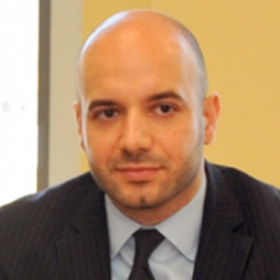
Cybersecurity: Unchartered Waters for the UN
More than 130 people from 50 countries attended "Cybersecurity: Unchartered Waters for the UN," a panel discussion hosted by the German Mission and the EastWest Institute on Thursday, June 6, 2013, at the German House in New York City.
Ambassador Peter Wittig opened the event calling cybersecurity “a major cross-cutting issue of foreign policy,” where “the stakes are too high and too many lives are at risk for a mere laissez-faire approach.” He admitted that cyber issues are rarely discussed within the UN and that this must change.
Wittig called for a “framework for lawful state conduct in cyberspace. We should have clarity about the rules and norms that apply in cyberspace.” The panelists focused on just that in a lively debate that engendered many questions from the audience.
The panelists were James Lewis, senior fellow and program director at the Center for Strategic and International Studies (CSIS), Washington, D.C.; Sandro Gaycken, researcher in technology and security, Institute of Computer Science, Freie Universität, Berlin; and Cherian Samuel, associate fellow, Strategic Technologies Centre, Institute for Defence Studies and Analyses, New Delhi. Colum Lynch, UN correspondent for the Washington Post and blogger for Foreign Policy moderated.
All panelists agreed that current strategies for cybersecurity are not working; they differed however, in their long range views of how to tackle this immeasurable problem.
Gaycken stated that because attribution is so difficult to determine in cyber incidents, he believes that applying international laws that already exist in the military, aviation or similar spheres will not be effective, and that other paths of containment must be explored. This, he emphasized, is especially true in light of almost daily advancing technological capabilities.
Speaking from the perspective of the hacker, Gaycken said, “It’s very unlikely that anything you do will be discovered…and you’re not being identified, so you’re out of risk. Not much is going to happen to you if you do it right.” He continued, “So that’s something that all of these nations must consider—getting the golden key to all these castles. That was simply not possible before.”
Lewis countered this argument using a graffiti analogy. “Even though most times no one sees the spray painter who defaces property with graffiti, there are still laws against it. Eventually the spray painter is identified and prosecuted. The same with hackers—there still must be laws that are and will be enforceable and we should continue working toward that.”
Samuel spoke to the urgency of this work, as he reminded the audience that India has the third largest Internet-driven market in the world. “Bad guys are taking advantage of the fact that nation states are not tackling cybersecurity in more effective ways. We have the same problems as other countries but of course on a much larger scale.”
To that point, Lewis stressed that, “Government is better at addressing certain issues, while the private sector is better able to handle others. That is why it is essential to have both at the table working in tandem.”
EWI President John Mroz concluded the event with a summation of main points, stressing that there must be global cooperation on this frontier, and that this event is the first in what will be a series of co-sponsored cyber panels with the German mission.
“Nobody knows how big the cybersecurity problem is, and that is why it is essential that we continue this dialogue and work together for tangible solutions,” Mroz stated.
To read Huffington Post's blog on the event, click here.
To view pictures from the event, click here.

